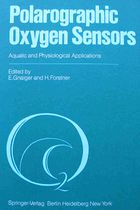Difference between revisions of "Smith 1983 POS"
| Line 1: | Line 1: | ||
{{Publication | {{Publication | ||
|title=[[File:Gnaiger-Forstner 1983 POS.jpg|left|55px|link=https://www.bioblast.at/index.php/Gnaiger_1983_Springer_POS|POS1983]] Smith KL Jr, Baldwin RJ (1983) Deap-sea respirometry: In situ techniques. Aquatic and Physiological Applications. Gnaiger E, Forstner H (eds), Springer, Berlin, Heidelberg, New York: 298-320. | |title=[[File:Gnaiger-Forstner 1983 POS.jpg|left|55px|link=https://www.bioblast.at/index.php/Gnaiger_1983_Springer_POS|POS1983]] Smith KL Jr, Baldwin RJ (1983) Deap-sea respirometry: In situ techniques. Aquatic and Physiological Applications. Gnaiger E, Forstner H (eds), Springer, Berlin, Heidelberg, New York: 298-320. | ||
|info=[[File:PDF.jpg|100px|link=http://wiki.oroboros.at/images/d/d1/Smith_1983_POS.pdf |Bioblast pdf]] | |info=[[File:PDF.jpg|100px|link=http://wiki.oroboros.at/images/d/d1/Smith_1983_POS.pdf |Bioblast pdf]] [https://link.springer.com/chapter/10.1007/978-3-642-81863-9_27 Springer link] | ||
|authors=Smith KL Jr, Baldwin RJ | |authors=Smith KL Jr, Baldwin RJ | ||
|year=1983 | |year=1983 | ||
|journal=Springer | |journal=Springer | ||
|abstract=[[File:Gnaiger&Forstner POS 1983.jpg|right|140px|link=Gnaiger 1983 Springer POS|Gnaiger 1983 Springer POS]] | |abstract=[[File:Gnaiger&Forstner POS 1983.jpg|right|140px|link=Gnaiger 1983 Springer POS|Gnaiger 1983 Springer POS]] The deep-sea environment occupies over half the earth’s surface. However, inaccessibility has greatly restricted the study of this unique environment characterized by high pressure and low temperature. Technological advances over the past 15 years permit us to “enter” the deep-sea environment either directly with submersibles or indirectly with sophisticated instrumentation to make observations, collections and measurements and to conduct experiments. With these advances, the biological dynamics of the deep-sea ecosystem are slowly being resolved. Our contributions to this resolution are related to energy flow and, more specifically, the metabolism of deep-sea organisms. The integral component of our instrumentation used in these studies is the polarographic oxygen sensor (POS). | ||
In: [[Gnaiger 1983 Springer POS |Gnaiger E, Forstner H, eds (1983) Polarographic Oxygen Sensors. Aquatic and Physiological Applications. Springer, Berlin, Heidelberg, New York:370 pp.]] | In: [[Gnaiger 1983 Springer POS |Gnaiger E, Forstner H, eds (1983) Polarographic Oxygen Sensors. Aquatic and Physiological Applications. Springer, Berlin, Heidelberg, New York:370 pp.]] | ||
}} | }} | ||
Revision as of 19:16, 17 February 2020
| Smith KL Jr, Baldwin RJ (1983) Deap-sea respirometry: In situ techniques. Aquatic and Physiological Applications. Gnaiger E, Forstner H (eds), Springer, Berlin, Heidelberg, New York: 298-320. |
Smith KL Jr, Baldwin RJ (1983) Springer
Abstract:
The deep-sea environment occupies over half the earth’s surface. However, inaccessibility has greatly restricted the study of this unique environment characterized by high pressure and low temperature. Technological advances over the past 15 years permit us to “enter” the deep-sea environment either directly with submersibles or indirectly with sophisticated instrumentation to make observations, collections and measurements and to conduct experiments. With these advances, the biological dynamics of the deep-sea ecosystem are slowly being resolved. Our contributions to this resolution are related to energy flow and, more specifically, the metabolism of deep-sea organisms. The integral component of our instrumentation used in these studies is the polarographic oxygen sensor (POS).
Labels:
POS 1983


